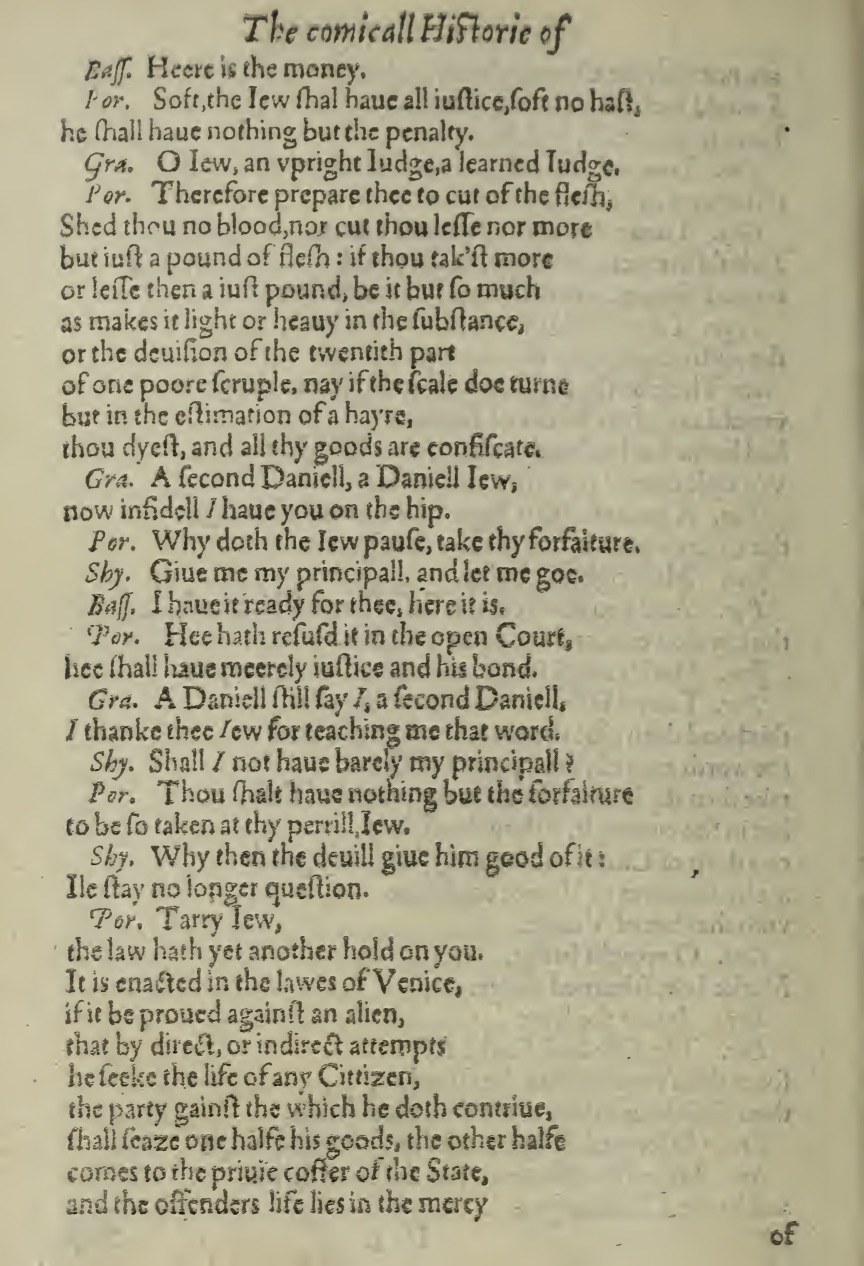The comicall Historie of
Bass. Heere is the money.
Por. Soft the Jew shal have all justice, soft no hast,
he shall have nothing but the penalty.
Gra. O Jew, an upright judge,a learned Judge.
Por. Therefore prepare thee to cut of the flesh,
Shed thou no blood, nor cut thou lesse nor more
but just a pound of flesh : if thou Tak’st more
or lesse then a just pound, be it but so much
as makes it light or heavy in the substance,
Or the devision of the twentith part
of one poore scruple, nay if the scale doe turne
but in the estimation of a hayre,
thou dyest, and all thy goods are confiscate.
Gra. A second Daniell, a Daniell Jew,
now infidell I have you on the hip
Por. Why doth the Jew pause, take thy forfaiture.
Shy. Give me my principall, and let me goe
Bass.I have it ready for thee, here it is.
Por. Hee hath refus’d it in the open Court,
hee shall have meerely justice and his bond.
Gra. Aa Daniell still say I, a second Daniell,
I thank thee Jew for teaching me that word,
Shy. Shall I not have barely my principall ?
Por. Thou shalt have nothing but the forfaiture
to be so taken at thy perrill,Jew.
Shy. Why then the devill give him good of it :
Ile stay no longer question.
Por. Tarry Jew,
the law hath yet another hold on you.
It is enacted in the lawes of Venice,
if it be proved against an alien,
that by direct, or indirect attempts
he seeke the life of any Cittizen,
the party gainst the which he doth contrive,
shall seaze one halfe his goods, the other halfe
comes to the privie coffer of the State,
and the offenders life lies in the mercy
